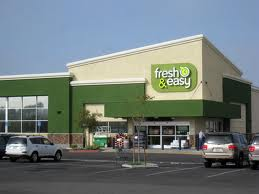Learning from Tesco’s US Disaster
Last week British grocery giant Tesco threw in the towel and announced that it would stop investing in its U.S. business. The company will either close or sell its nearly two hundred store “Fresh & Easy” chain.
This isn’t surprising news; the U.S. business had apparently been struggling for years. Since its opening in 2007, Tesco has lost more than £850 million on the business and results apparently were not improving quickly.
There are three important learning points here.
First, it is incredibly difficult to enter an established category where people have little motivation to learn. Grocery stores are fine. People aren’t looking for another one. If the concept isn’t dramatically different, like Whole Foods or Trader Joe’s, then people won’t change. Tesco tried to enter the US by creating lovely stores that were modestly different. This just won’t work. It is amazing they tried at all.
Second, when the numbers don’t work people eventually give up. Companies launch new products to build profits. When it is clear that the new venture won’t generate good returns, they stop investing. When evaluating competitors, it is useful to keep this in mind; if you want someone to stop attacking you, just convince them they won’t make any money and they will stop.
Third, defensive strategy really works. Analysts are blaming Tesco’s failure on the company and the economy. But I am quite confident US retailers did everything they could to make Tesco’s life difficult. That would have been a very smart strategy; Tesco was a huge long-term threat to US retailers. Tesco’s failure was very good news for Kroger and Wal-mart.
* * *
This week I am teaching courses in Japan and Denmark. Next week I’ll be doing a breakfast program on defensive strategy with the Business Marketing Association of Chicago. It is on December 18. You can register here:
https://bmachicago.org/bma-events/power-defensive-strategy

Is there any information available regarding specific elements of defensive strategy used by Tesco’s competitors?